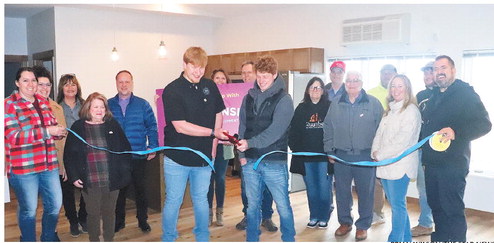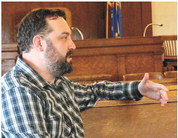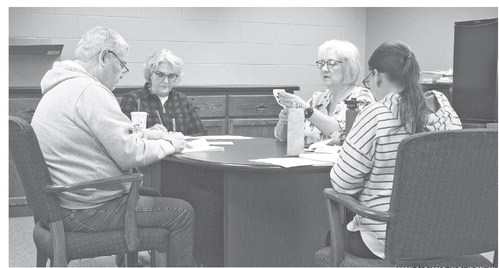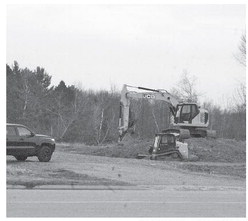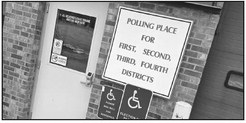City OKs pool opening, fireworks show
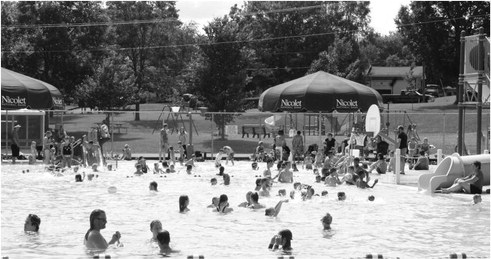

Proposal calls for reduced attendance, no food sales in park on July 4 weekend
The Medford City Pool will open as scheduled on June 10 with restrictions under proposal endorsed by the Medford City Council’s committee of the whole meeting Tuesday.
After a lengthy and at times contentious discussion, aldermen voted to recommend having the pool open as planned, but with the following conditions:
_ Reduced attendance from a maximum of 300 people to a maximum of 150. This will allow for social distancing to take place in the pool area.
_ Only those with pool passes will be allowed and patrons will be required to show their pass. This will provide a record of who is at the pool each day in order to allow for easier contact tracing should that become necessary if someone gets sick. In addition it will ensure that locals are the primary users rather than those coming from other areas where pools are closed.
_ Tables and chairs will be removed. Those in the deck area will be asked to use social distancing with the pool staff given the authority to shut down the pool if people refuse to follow the rules. The authority to shut down the pool for rule violators is consistent with their previous authority to enforce pool rules.
In addition, changing areas will be closed with access only to the bathrooms in the locker rooms. The workers will spray all surfaces with a sanitizing chlorine solution during regular breaks during the day.
Mayor Mike Wellner described the decision to open the pool as being a “no win situation.” He noted there were people who were concerned about it from a health perspective, but also said there were parents who were getting frustrated with needing activities and things to do.
Wellner said with the absence of direction from the state or regional level, it falls to municipalities to make tough decisions like this. He said he has consulted with county health director Patty Krug who told him that the chlorine in the pool water would kill the virus that causes COVID-19, the concern is when people are on the deck area and the chance for it to be passed from one person to another there.
The city had received a letter from a resident involved with the swim program urging the city to hold off on opening the pool until July 6 over safety concerns. In addition, a state survey of about 100 municipalities with swimming pools it was evenly split between those who were closed for the season, those who were waiting until July to open and those who were undecided. City coordinator John Fales noted the survey was a week old, and was not opposed to holding off for a July start. He said that the city wasn’t a business and that because the pool already doesn’t break even in expenses, it would not be much more to delay an opening.
Alderman Mike Bub disagreed. “People are looking for something to do,” he said. He noted that if people feel uncomfortable with being there, they can stay home.
While supportive of opening the pool, Wellner disagreed with the argument that people could just stay home. “You are not just taking the chance for yourself, but for the next people who come into contact with,” Wellner said, noting that he felt there needs some restrictions in place.
“If you get 50 people standing a foot apart they shouldn’t be open,” Wellner said, noting the need for social distance.
Alderman Greg Knight said he could see delaying the opening until July as being a good compromise measure and it would gain the city more time to determine if the restrictions are necessary. “It is a real compromise when dealing with a real threat,” he said.
“What happens if there is a positive case that is known at the pool?” asked aldermen Chrissy Weix. “How do we protect our staff?”
If a positive case was traced to the pool, the Centers for Disease Control contract tracing procedures would take place with everyone who was at the pool that day being contacted and potentially required to quarantine. This would be the same as with any communicable disease that falls under the federal contract tracing guidelines.
Weix also expressed concern that with limits on attendance people from elsewhere would crowd out local residents. It was suggested that by limiting access to people with pool passes this would give an advantage to people who live in the city and surrounding communities rather than outside visitors.
Alderman Clem Johnson noted the city always has the option to shut the pool down. If things change over the course of the summer or if rules aren’t being followed, the city can always shut the pool down.
The recommendation will go to the city council on Monday for final approval.
Fireworks
The city of Medford’s 4th of July Fireworks display will go on, but there will be no food sales or associated activities in the park that weekend. Traditionally, the Lions Club runs a food stand and the Kiwanis Club sells popcorn and snow cones.
The city is scheduled to hold its fireworks display on Friday, July 3. The city’s vendor suggested that rather than a 30-minute show with primarily lower shooting shells, the city could choose a 25-minute show with higher- shooting shells that will have displays that can be seen from around the community. This would help reduce the number of people in the park for the event.
Wellner suggested not having the food, beer stand and other activities that evening as a way to reduce the size of the crowd so that there was not a large concentration of people. Those in attendance would be asked to maintain separations with six feet between family groups.
Under the recommendation approved by aldermen, no food would be sold in the park after the scheduled pool closing. Alderman Tim Hansen disagreed with the blanket rule stating that the snack vendors who operate a food stand under agreement with the city outside the pool each summer should be allowed to be open that night, since it accounts for an important part of their summer business.
The recommendation will go to the council meeting on Monday for final approval.
Baseball storage building
The city of Medford will move forward as a partner for a new larger storage building by the city baseball fields.
Aldermen recommended the city contribute $9,500 toward the construction cost of the planned 24 foot by 30 foot garage-style building which will include two bay doors and service entrance and will likely be wired for power. The estimated cost of the building is $21,800. Tom Mueller of Medford City Baseball (MCB) was at the meeting asking for the city’s assistance in getting it built.
Mueller said the remaining cost of the building would be covered with donations of labor and materials as well as funds from MCB. MCB operates the city park baseball complex under contract with the city. Under the agreement, the group maintains the fields, concession buildings and public restrooms with the city paying them $5,000 a year. In addition, the group is able to keep any revenue from the concession stand.
Alex Gowey of Olynicks said the company agreed to donate the concrete for the pad with MCB’s board covering the site preparation and setting of forms. In addition, Randy Haynes of Combined Carpentry agreed to provide supervision for a volunteer crew to erect the building — a task he said that should be able to be done over a weekend. In addition, the city received a pledge from Len Hamman of the Medford Lions Club that the Lions will contribute $2,500 to the project. The Medford Kiwanis Club is also looking at being involved as a partner in the project with the possibility of utilizing space in the building for Holiday Magic light display decorations.
The storage building had first been proposed last winter, but at the time met with opposition from council over the plans not being fully set.
Mueller presented the proposal for the building, which he said would be used to store bulk materials used in the maintenance of the fields, mowers and field dragging equipment as well as game equipment for the various levels of play. Currently this equipment is stored at scattered locations at coaches and board members’ homes. Mueller noted that while hauling equipment in to games is something coaches have done in the past, it would be better to be able to have it all stored at the field and ready for use.
As with other buildings in the park, the storage garage would be owned by the city and covered under the city’s general property insurance. Any materials stored in the building would be covered under MCB or another group’s insurance.
Many of the questions at Tuesday’s meeting focused on the finances of MCB in relation with Little League and with possible fundraisers.
Mueller said the MCB’s primary fundraiser is selling banner advertising on the outfield fences. He said they try not to do too many other fundraisers because they don’t want to compete with other groups. “Everybody in town is trying to raise money,” Mueller said.
Weix questioned why the Little League teams were not being charged to use the fields, suggesting that $20 a night to use them was reasonable. She noted the youth in the program are paying to participate and that should also include helping with field upkeep.
Knight and Roiger questioned the revenue generated from the concession stand sales. Mueller said that due to manpower needs, MCB allowed Little League to run the concession stand and keep the revenues. In exchange, Little League has made contributions to field upgrades such as installing the roofs on the dugouts. He said the amounts contributed by Little League surpasses what they would receive if they charged fees.
Bub noted that in the annual financial report given to the city, these donations were never shown. “We can only make decision on information we are provided,” Bub said.
Roiger said he would like to know if Little League planned to contribute anything toward this shelter. “They should have skin in the game,” he said.
Holmes noted the financial report provided last winter by the group was incomplete and said they needed to do a better job reporting information to the city. “It would help us make better decisions,” she said.
Knight said he felt the group should do additional fundraising for the storage building and questioned the cost of items being left out of the project such as installation of electrical service.
At one point in the meeting, the discussion over the shed became derailed as aldermen and Mueller squabbled over the amount of contributions the city has made toward the field upgrades in recent years and what the annual $5,000 contribution in the contract is used for.
“I think the city has put a lot into it,” Bub said, noting that if you add up the amount from the various sources such as hotel/motel room tax fund and the county’s power line impact fee funds, the amount is over $50,000.
“Why are we putting up all these roadblocks?” asked board member Tim Hansen. He said the field is a community resource and compared asking groups to hold fundraisers for field improvements with asking people to hold fundraisers to get curb and gutter installed in their neighborhoods.
There was agreement that prior to MCB taking over the fields, they were not being used and since the group began managing them and making improvements, they are seeing much more use. In the end, aldermen voted 7-1 with Knight opposed to have city contribute up to $9,500 for the storage building project with the money to come from city undesignated reserves funds.
In related field matters, aldermen addressed concerns over the regular maintenance of the restrooms noting there had been complaints last season. Mueller said they will be doing a better job this year checking them on a daily basis to make sure they are clean and supplies are stocked. It was also clarified that while the group is responsible for the routine maintenance, any major repairs or replacement of fixtures are the responsibility of the city.

